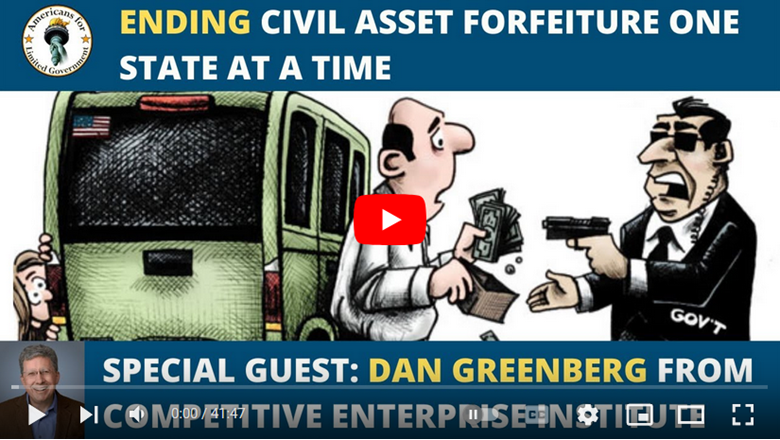April 28, 2022
Permission to republish original opeds and cartoons granted.
Apple and Google Play threaten to remove Elon Musk’s Twitter from your phones if free speech is allowed on the platform
By Robert Romano
“I am told this morning that Apple and Google will remove Twitter from the App Store if it does not moderate and remove hate speech under @ElonMusk. This isn’t a new policy, but a commitment already made. Amazon Web Services has the same commitment. So there’s that.”
That was social justice activist Shaun King on Twitter on April 27 , reporting that if Elon Musk, the new 100 percent owner of Twitter, follows through with his plan to take the company private and make it a free speech platform, it will be promptly removed from the Apple and Google Play stores, and Amazon Web Services, too — just like Parler was in 2021 in the aftermath of the Jan. 6 riot at the U.S. Capitol.
King’s report came a day after Media Matters for America President Angelo Carusone urged Apple and Google to deplatform Twitter, writing in a Twitter statement , “Musk will unwind a whole range of very basic protections against harassment, abuse, disinformation. Effectively, he’ll open the flood gates of hate and lies. And, he’ll use Twitter as a cudgel against other social media companies to press them to backslide.”
Carusone added, “Apple should make clear and reiterate that Twitter won’t get special treatment. Some of what Musk plans to do will violate Apple’s requirements for the App Store and Apple needs to make it clear they will enforce their rules and uphold their requirements.”
There’s just one problem.
Here, King and Carusone are advocating and celebrating the advent of a corporate state that can deny public accommodations like social media to anyone it chooses, for any reason. This is not only dangerous to free speech but it essentially proves the greatest threat to liberty today comes not from government, but from corporations that seek to govern thought itself.
In 2021, Parler was removed from Apple phones, Google android phones and Amazon’s web servers supposedly for a failure to police advocacies of violence on its platform , even though similar examples of unpoliced advocacies of violence could be found on Facebook, Twitter, YouTube and message boards everywhere. In fact, according to Justice Department filings , some of those facing charges were pre-planning the attack as early as Jan. 1 on Facebook, not Parler. But only Parler was punished. None of them should have been.
Section 230 of the Communications Decency Act allows interactive computer services to govern speech anyway they want as a means of guaranteeing a free and open internet with robust networks freed of individual user liability — or so we thought. Parler embraced free speech and was practically destroyed for it.
In the meantime, federal antitrust law under 15 U.S.C. Section 1 makes “conspiracy… in restraint of trade or commerce” a criminal felony.
But which statute takes precedence? They must be read consistently, and given Congress’ intent behind antitrust was to cover all businesses regardless of industry, I think Section 230 must conform to antitrust’s prohibition on restraining trade of competitors. But if Section 230 were actually an exception to antitrust, then it should be amended.
That is why Congressional Republicans looking to take back the House and Senate this year, including House Minority Leader Kevin McCarthy (R-Calif.) and Senate Minority Leader Mitch McConnell (R-Ky.) should seek to rein in Big Tech’s monopoly by defining social media as public accommodations under civil rights law and add “opinions” to the protected classes.
Additionally, the very terms of service that restrict unpopular speech on the internet, whether on social media like Twitter , or on Apple, Google or Amazon, have come about directly as a result of Environmental, Social and Governance (ESG) investing including Diversity & Inclusion goals that clearly favor “safe spaces” over the freedom of expression.
Republicans in Congress in 2023, should they reclaim majorities, could defund ESG investments incentivized into private retirement plans by a 2015 Obama administration Labor Department regulation , and also end direct subsidies by the $767 billion federal employee retirement plan , the Thrift Savings Plan.
Since the reported actions now targeted at speech on Twitter by Apple and Google Play — if true — are the direct result of ESG objectives; and fit the same pattern of targeting Parler (but not Twitter or Facebook) in 2021, give the appearance of anticompetitive collusion. In the least, the Justice Department Antitrust Division should investigate this repeated censorship of major platforms.
And Elon Musk should sue, too.
There is simply too much at stake. The freedom of the marketplace of ideas to operate is essential to democracy.
Which, that sounds about right. Twitter must fight this battle now or humanity could suffer the “social tyranny” John Stuart Mill warned of in his defense of free speech, On Liberty in 1859: “[W]hen society is itself the tyrant — society collectively over the separate individuals who compose it — its means of tyrannising are not restricted to the acts which it may do by the hands of its political functionaries. Society can and does execute its own mandates; and if it issues wrong mandates instead of right, or any mandates at all in things with which it ought not to meddle, it practices a social tyranny more formidable than many kinds of political oppression, since, though not usually upheld by such extreme penalties, it leaves fewer means of escape, penetrating much more deeply into the details of life, and enslaving the soul itself.”
Musk on April 27 on Twitter said he will reveal Twitter’s new content policy soon, but promises that political hardliners will not be happy: “Attacks are coming thick and fast, primarily from the left, which is no surprise, however I should be clear that the right will probably be a little unhappy too. My goal is to maximize area under the curve of total human happiness, which means the ~80% of people in the middle.”
Musk is right. Having a free and open internet is the greatest good for the greatest number. The corporate censorship we are currently living with only serves elite corporations who “own” the public square, the essential ingredient to democracy. Our society is only as free as our ability to criticize it.
Robert Romano is the Vice President of Public Policy at Americans for Limited Government.
Video: Ending government’s civil asset forfeiture theft of property one state at a time w/ Dan Greenberg
To view online: https://www.youtube.com/watch?v=yTCVaCej4n0

ALG Editor’s Note: In the following featured oped from TheHill.com , George Washington University professor Jonathan Turley makes the case for free speech on Twitter:

Jonathan Turley: An easy solution for Musk to restore free speech to Twitter
By Jonathan Turley
For free speech advocates, Elon Musk’s purchase of Twitter could prove the most impactful event since Twitter’s founding in 2006. The question, however, is how Musk can accomplish his lofty goal of restoring free speech values to social media. He first would have to untie the Gordian knot of censorship in a company now synonymous with speech control. The answer may be simpler than most people think. Indeed, anti-free-speech figures in the country may have given Musk the very roadmap he’s looking for: the First Amendment.
The purchase of Twitter alone will have immediate and transformative changes for free speech. The control over speech on social media required a unified front. Free speech is like water, it tends to find a way out. With social media, there was no way out because of the unified front of companies like Google, Apple and Facebook. Facebook is actually running commercials trying to convince people to embrace their own censorship. This message was reinforced by Democratic leaders like President Biden , who demanded that these companies expand censorship and curtail access to harmful viewpoints.
Now this market has one major competitor selling a free speech product. The fear is that Musk might be proven right and that Twitter could become larger and more profitable by allowing more free speech. Facebook has not had much success in convincing customers to embrace censorship, but it may find shareholders wondering why the Facebook board (like the Twitter board) is undermining its own product as a communications company committed to limited speech.
Another immediate change could be the forced exodus of a line of ardent censors from the company, with Twitter CEO Parag Agrawal (hopefully) at the head of line. Agrawal is one of the most anti-free-speech figures in Big Tech. After taking over as CEO, Agrawal quickly made clear that he wanted to steer the company beyond free speech and that the issue is not who can speak but “who can be heard.”
However, once such figures are removed from Twitter, the question is how to re-establish a culture of free speech. The answer may be in the very distinction used by Democratic politicians and pundits to justify corporate censorship.
For years, anti-free-speech figures have dismissed free speech objections to social media censorship by stressing that the First Amendment applies only to the government, not private companies. The distinction was always a dishonest effort to evade the implications of speech controls, whether implemented by the government or corporations. The First Amendment was never the exclusive definition of free speech. Free speech is viewed by many of us as a human right; the First Amendment only deals with one source for limiting it. Free speech can be undermined by private corporations as well as government agencies. This threat is even greater when politicians openly use corporations to achieve indirectly what they cannot achieve directly.
Corporations clearly have free speech rights. Ironically, Democrats have long opposed such rights for companies , but they embrace such rights when it comes to censorship. The Democratic Party embraced corporate governance of free speech once these companies aligned themselves with their political agenda. Starbucks and every other company have every right to pursue a woke agenda. Social media companies, however, sell communications, not coffee. They should be in the business of free speech.
Democrats have continued to treat the First Amendment as synonymous with free speech, as a way to justify greater censorship. Just last week, former President Barack Obama spoke at Stanford to flog this false line. Obama started by declaring himself , against every indication to the contrary , to be “pretty close to a First Amendment absolutist.” He then called for the censorship of anything that he considered “disinformation,” including “lies, conspiracy theories, junk science, quackery, racist tracts and misogynist screeds.” He was able to do that by emphasizing that “The First Amendment is a check on the power of the state. It doesn’t apply to private companies like Facebook or Twitter.”
Well, what if it did? The Constitution does not impose the same standard on Twitter — but Musk could. He could order a new Twitter team to err on the side of free speech while utilizing First Amendment standards to maximize protections on the platform. In other words, if the government could not censor a tweet, Twitter would not do so.
The key to such an approach is not to treat Twitter as akin to “ government speech ,” a category where the government has allowed major speech controls. Rather, tweets are very much as Musk has described them: akin to speech in “ the digital town square .” If the government could not stop someone from speaking in a public forum like a town square, Twitter should not do so through private means.
The value to tying private speech to First Amendment jurisprudence is that there is a steady array of cases illuminating this standard and its applications.
Such a rule would admittedly allow a large array of offensive and objectionable speech — just as the First Amendment does in a public square. That is the price of free speech.
This is, admittedly, not a perfect fit. Twitter needs to protect itself from civil liability in the form of trademark, copyright and other violations in the use of its platforms. Moreover, most sites (including my own blog) delete racist and offensive terms. That can be done through standard moderation systems, which allow posters to edit their text or view. There are also standard rules against doxxing as well as personal threats or privacy violations.
Social media companies long had these limitations before plunging headlong into the type of content-based speech regulations made infamous by Twitter. Musk can use the baseline of the First Amendment with these limited augmentations to re-create the type of relatively open forums that once characterized the internet.
I have long admitted to being a type of “ internet originalist ” who prefers precisely the digital town square concept embraced by Musk. Adopting the First Amendment standards would create a foundation for free speech that can be tweaked to accommodate narrow, well-defined limitations.
The greatest challenge is not the restoration of free speech but the retention of such a site. Notably, figures like Hillary Clinton have suddenly turned from advocating corporate censorship to calling for good old-fashioned state censorship. Last week, Clinton called on the European Union to pass the Digital Services Act (DSA), a massive censorship measure that has received preliminary approval. Coming after Musk’s bid for Twitter, Clinton and others now want to use European countries to offer the same circumvention of the First Amendment. Rather than use a corporate surrogate, they would use an alternative state surrogate to force Twitter to censor content or face stiff penalties in Europe.
Musk will have to fight that battle when it comes. In the interim, he can rally the public, as he did Twitter shareholders, to the cause of free speech.
To view online:



